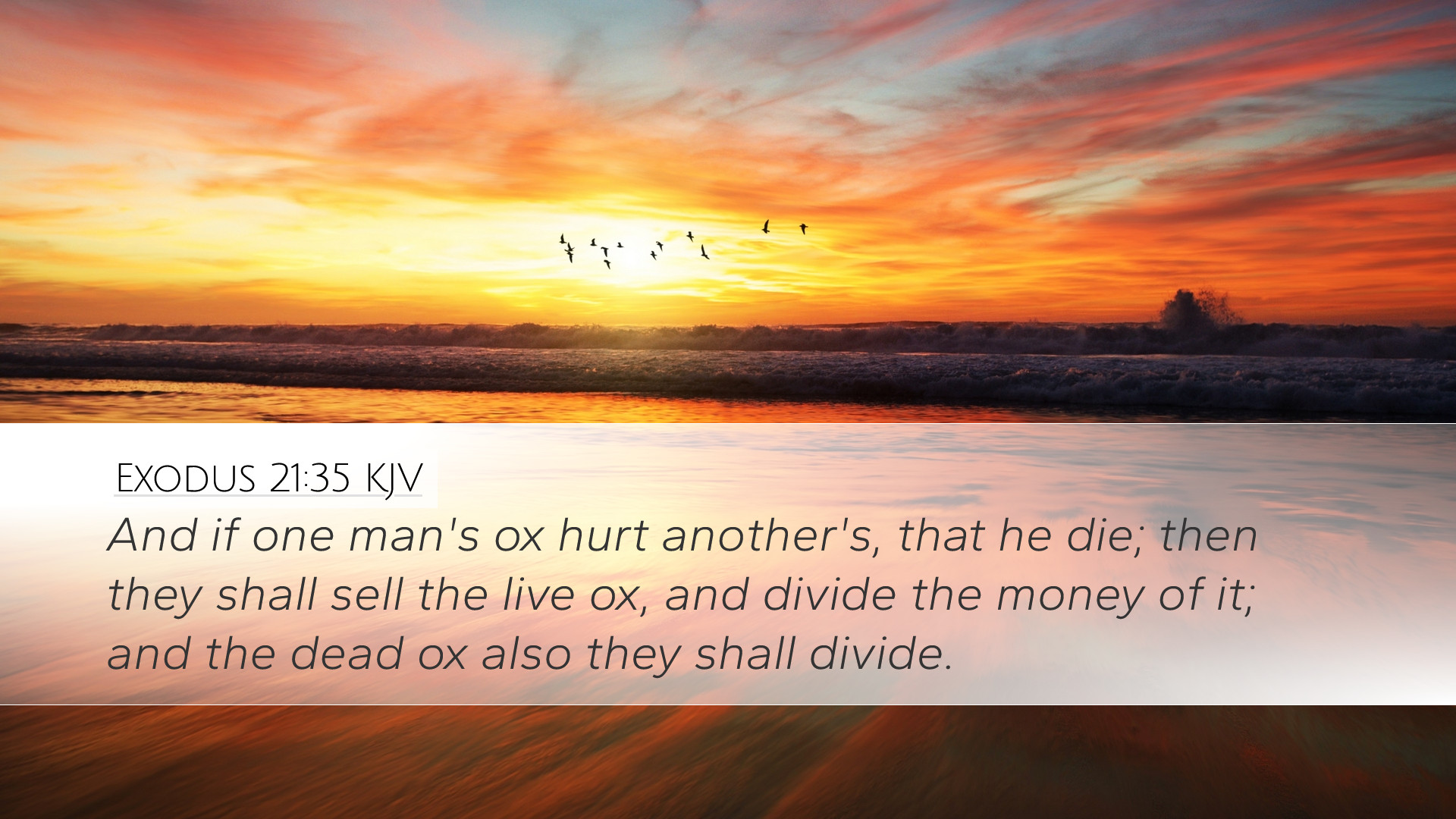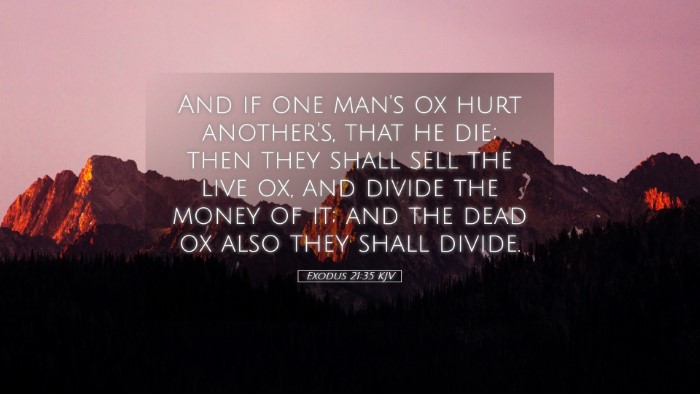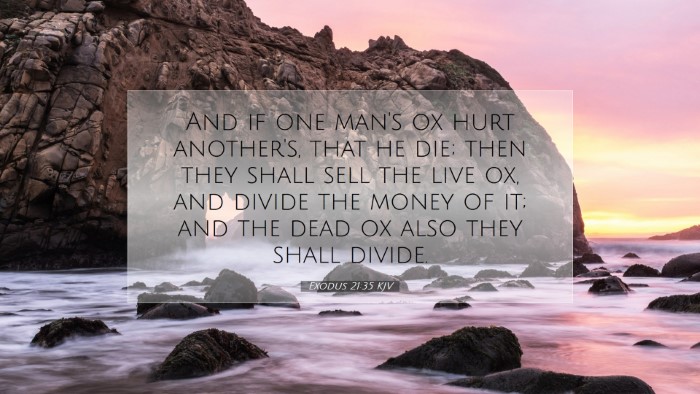Exodus 21:35 Commentary
Verse: "And if one man’s ox hurt another’s, that he die: then they shall sell the live ox, and divide the money of it; and the dead ox also they shall divide."
Introduction
The verse from Exodus 21:35 addresses the laws of damages and restitution regarding livestock, particularly focusing on the responsibility of individuals when their animals cause harm. This legal stipulation reflects not only practical considerations but also sheds light on the moral and ethical responsibilities inherent in societal interactions.
Historical Context
This passage is situated within the larger framework of the Mosaic Law, which was given to the Israelites to govern their societal, civil, and spiritual lives. Laws concerning livestock were vital, as they represented wealth, livelihood, and the agricultural basis of their economy. Understanding this context is crucial as it highlights the importance of communal harmony and personal responsibility.
Commentary Insights
Matthew Henry's Commentary
Matthew Henry observes that the law regarding the ox serves to instill a sense of accountability among neighbors. He emphasizes that when one’s ox injures another, it is not merely an economic transaction but a moral obligation. Henry suggests that this reflects the broader principle of loving one's neighbor. Hence, the law innovative in establishing a paradigm for restitution that encourages respect and responsibility in the community.
Albert Barnes' Notes on the Bible
Albert Barnes notes that this law is indicative of a personal responsibility that goes beyond mere compensation. He explains that the division of the dead and living ox signifies a fair and just settlement, ensuring that both parties receive equitable treatment. This law illustrates the principle that individuals must be prudent stewards of their possessions, understanding that their actions can lead to consequences for others. Barnes elaborates that such regulations not only protect property but also promote a spirit of cooperation and respect among community members.
Adam Clarke's Commentary
Adam Clarke emphasizes the spiritual implications of this statute. He indicates that the law showcases God’s focus on justice and the establishment of order. Clarke argues that the underlying reason for these guidelines is to prevent disputes and to ensure that each party is treated with fairness. He particularly highlights the importance of ethical behavior and foresight in preventing harm, suggesting that this injunction applies as much today as it did in ancient times, requiring individuals to act responsibly toward their possessions and relationships.
Theological Themes
- Accountability: This verse clearly depicts the necessity of being accountable for one’s possessions and their impact on others. It shows that faith must translate into responsible actions.
- Restitution and Justice: The principle of equitable compensation underscores God’s desire for justice and integrity within societal structures.
- Community Relations: The importance of maintaining harmonious relationships through accountability and restitution is foundational in the life of a believer. This reinforces Jesus' teachings on loving one’s neighbor as oneself.
Practical Applications
As modern readers and practitioners of the faith, we can derive several practical applications from this passage. The principles of accountability and justice hold significant relevance in contemporary settings:
- Personal Responsibility: Individuals must recognize their responsibilities towards the welfare of others in their community.
- Conflict Resolution: This text provides a framework for resolving disputes in a manner that honors both parties. Christians can use these principles to mediate conflicts and restore relationships.
- Ethics in Business: Those in positions of influence must consider the ethical implications of their actions, particularly how they relate to the wellbeing of others.
Conclusion
Exodus 21:35 offers valuable insights into the principles of accountability, justice, and communal responsibility in both ancient and modern contexts. By examining the teachings of notable commentators such as Matthew Henry, Albert Barnes, and Adam Clarke, we see a clear message that extends beyond legal obligations to encompass moral imperatives. As we reflect on this verse, may we strive to embody the principles of justice and love prescribed by God in our interactions with others.


